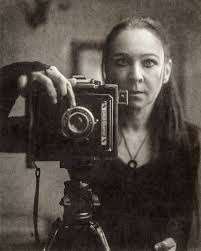Anjella Roessler is a photographer and mixed media artist who has worked in advertising, studio and wedding photography. She is also a current PSC Master of Arts - Photography student. Her research project 'Without Consent' is a sensitive and personal look at women who have been victims of sexual violence from the past and present. Her work involves creating a lumen print (using sunlight and darkroom paper) from plant specimens she extracts from the sites of importance to their stories.
Read about the ritualistic process behind Anjella's work, how she connects with victims of violence through the new DNA she creates from the plants, which she names after the women included in her series.
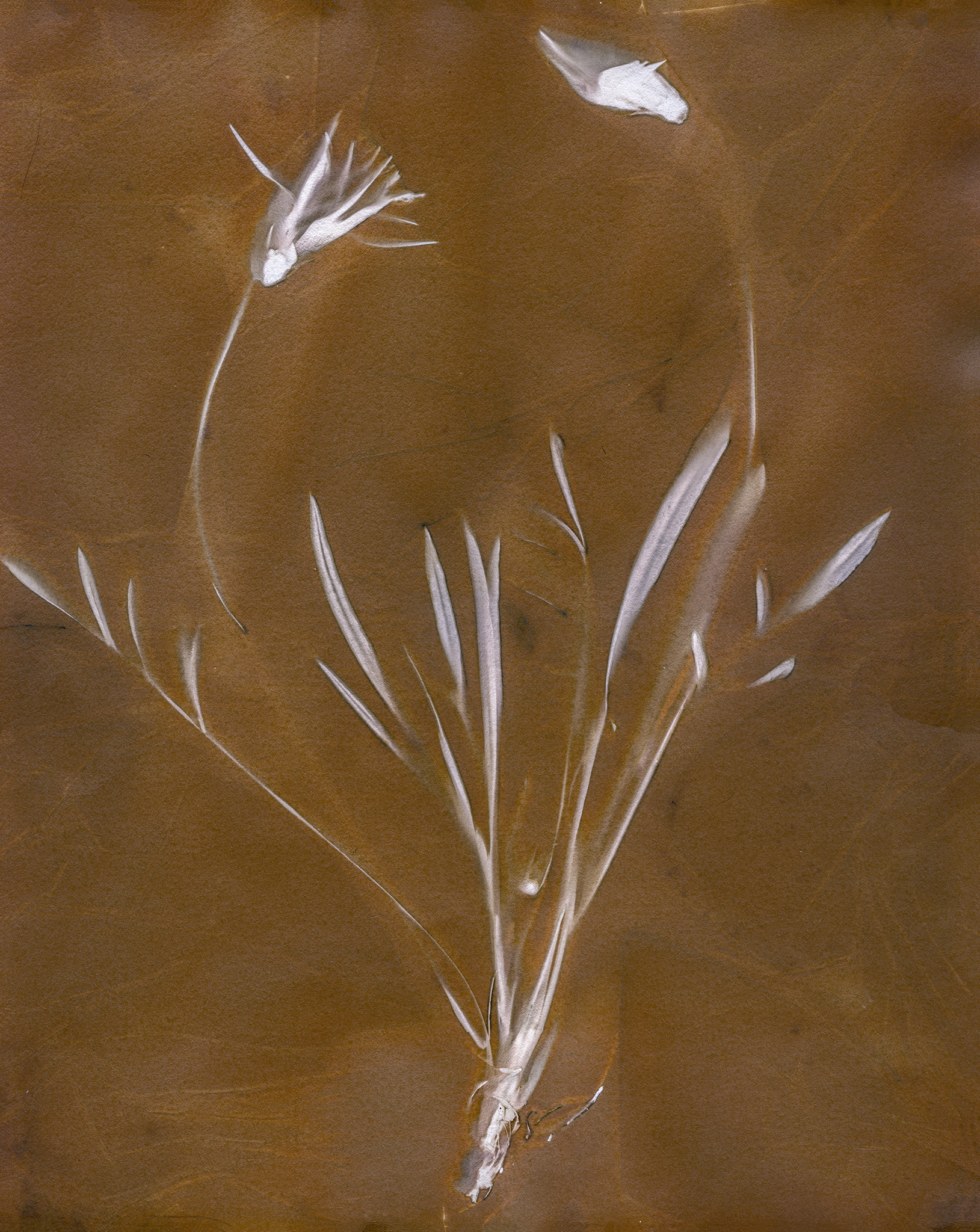
1995 Anon, by Anjella Roessler
Tell us about your series 'Without Consent'?
My Master of Arts - Photography work looks at rape and sexual abuse of women and how this cycle has remained all too familiar through history up to the present day. Using case studies from both early days of colonial history in Australia and also present day, my images are intended to show how little we have come in eradicating this form of violence from our society.
I combine historical research with hands on practice in creating my images. My research locates as near as possible the sites of recorded incidents of sexual violence. I then go to these locations and remove a plant which then becomes the basis for a lumen print (using sunlight and darkroom paper), by this process transferring DNA from the past to the image.
Why is it important for your images to have DNA from the past?
For me, it’s the link, it’s the molecular remnant of a female victim's existence that remains in our current times. We’re living and breathing the past continually, but to so many people the past is just a bunch of stories. It’s so much more, it still exists all around us.
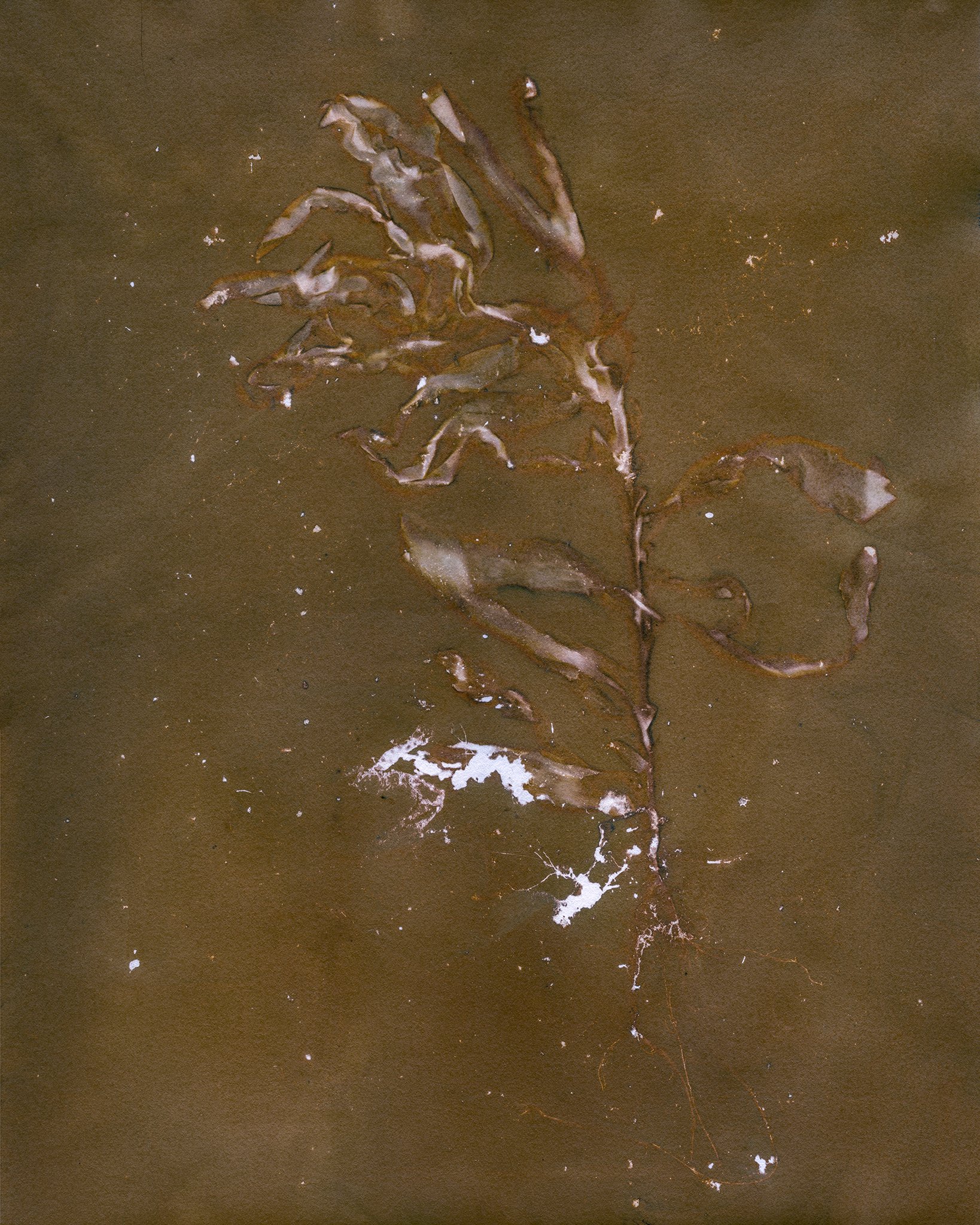
Elizabeth-Hayden by Anjella Roessler
Where have you gone to collect plants?
Most are quite urbanised now. Several are situated near parks and more than a few are in the Melbourne's CBD. In early days or European settlement, the cities of course weren’t much more than towns. They weren’t very spread out, and most reported cases of sexual violence was by women within these towns. Women in isolated communities would not have had the support to report these things.
What are some of the challenges you faced with this project?
The hardest part now is that with the level of urbanisation, some sites have very little flora around. I got some weird looks trying to pluck a lonely (yet very strong stemmed) weed out of the crack of a building down an alleyway in Chinatown.
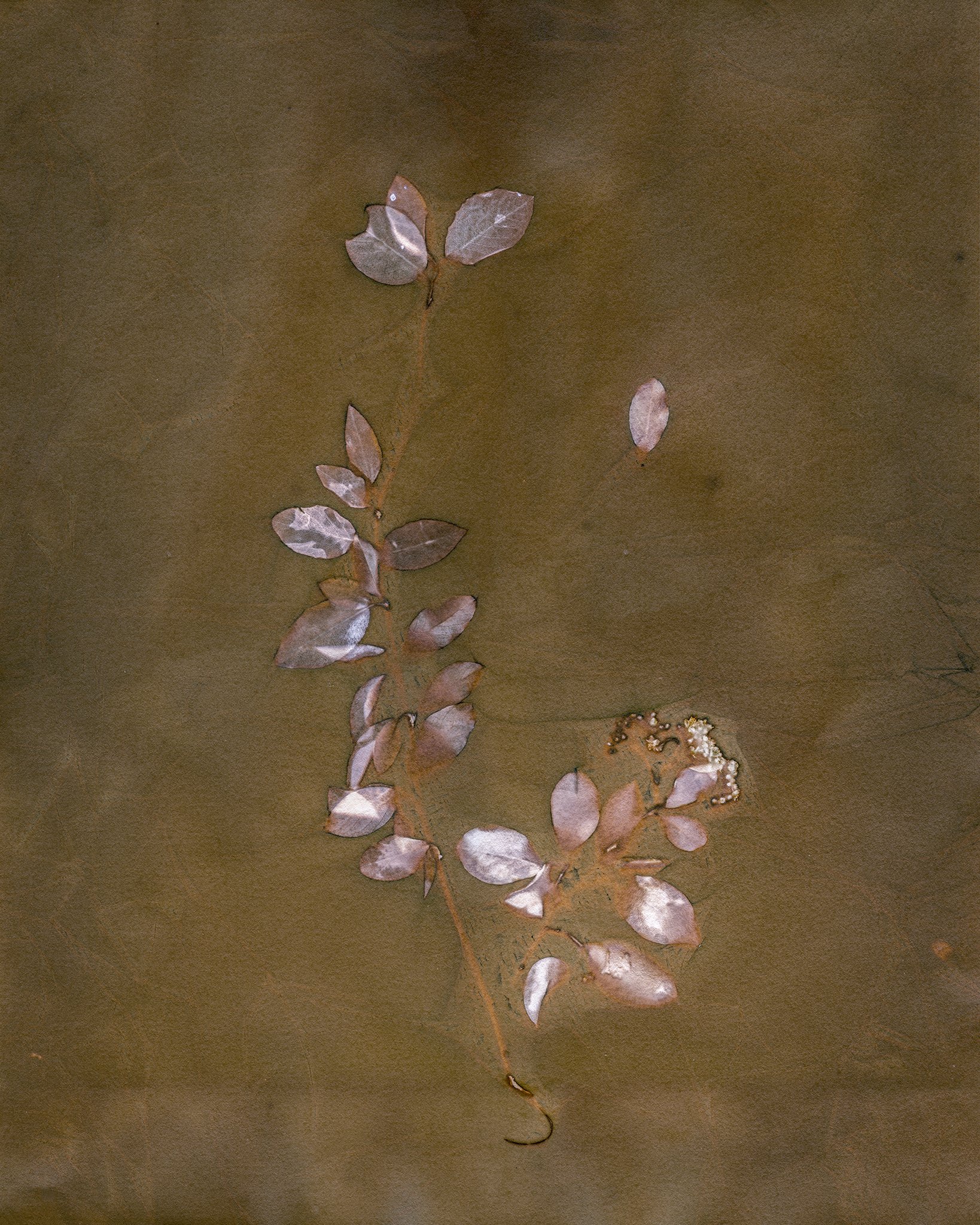
Anjella Roessler by Anjella Roessler
How do you feel when you visit these scenes of past violence against women, and how do you take care of the plants you take home?
It can be very emotional. I have to switch off a little at times or I wouldn’t be able to keep going. My plants take the places of my women/girls so, while violence is part of the removal process, I also try to treat the plants with respect once they’re removed from their site. The whole process from removal, to creation of the lumens is quite ritualistic to me. I keep the woman’s story in mind and try to always keep it about her specifically. I talk to her and she becomes a friend throughout the process. I know where at least one of my women are buried and I plan to go visit her at the end of the project, I couldn’t go yet though, as it would be too emotional, but I do feel I owe her, that’s how close I become to them.
How did you come up with the concept of expressing trauma, sexual violence and dignity via photography?
At first, I began concentrating on them more as historical cases, and was looking at how I could combine my previous study in history with my photography to create a new way of emoting the past. I was using photography to support the documentation that I was finding. But as I went, I found that I became more interested in the women and the emotions of rape, and the frustrations of trying to explain these feelings to people who have never experienced sexual violence. I am a rape victim myself, and I think it’s become a more personal project than I’d anticipated. It’s been very healing, and looking on them, they’re probably all very much about myself and my relationship and feelings of sisterhood with all of these women.
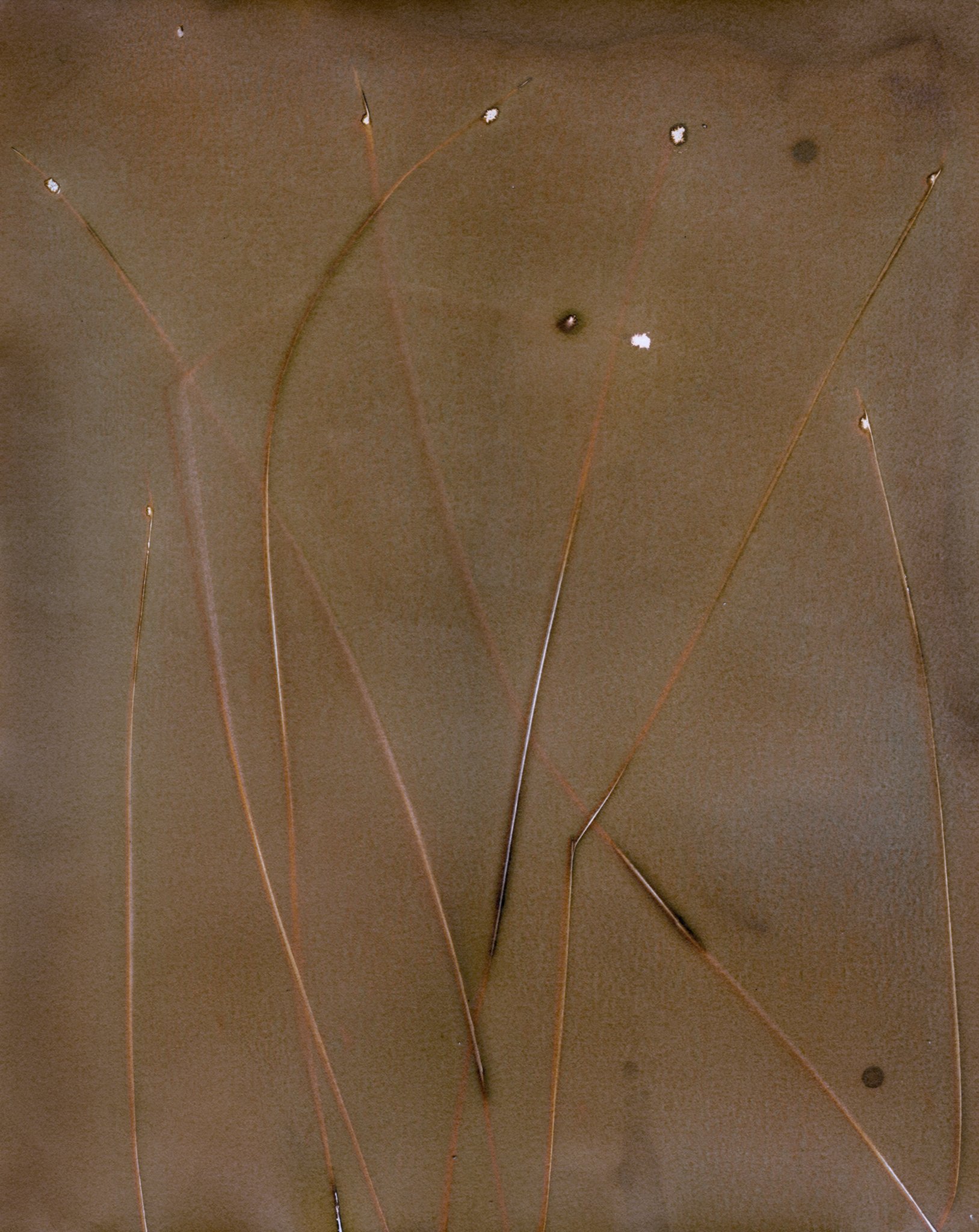
Mary Smith by Anjella Roessler
Why do you feel we have not progressed with eradicating violence against women?
We haven’t progressed anywhere in the world in eradicating violence against women. It continues and unfortunately will continue while women are valued as less than and our voices ignored.
What do you think we as a society can do to prevent further violence against women?
We need to make sure that the concept consent is taught, early on. It should be a huge part of sex education. We will never completely eradicate sexual violence especially those perpetrated by strangers which are more a violence of power generally. However, most cases of sexual violence are someone we know and trust, not these predators the media loves to show us. We need to talk about it more so that these acts can’t be hidden in the shadows, educate so that firstly victims no longer need to feel ashamed, and secondly the perpetrators can no longer hide and know they’re safe in the silence.
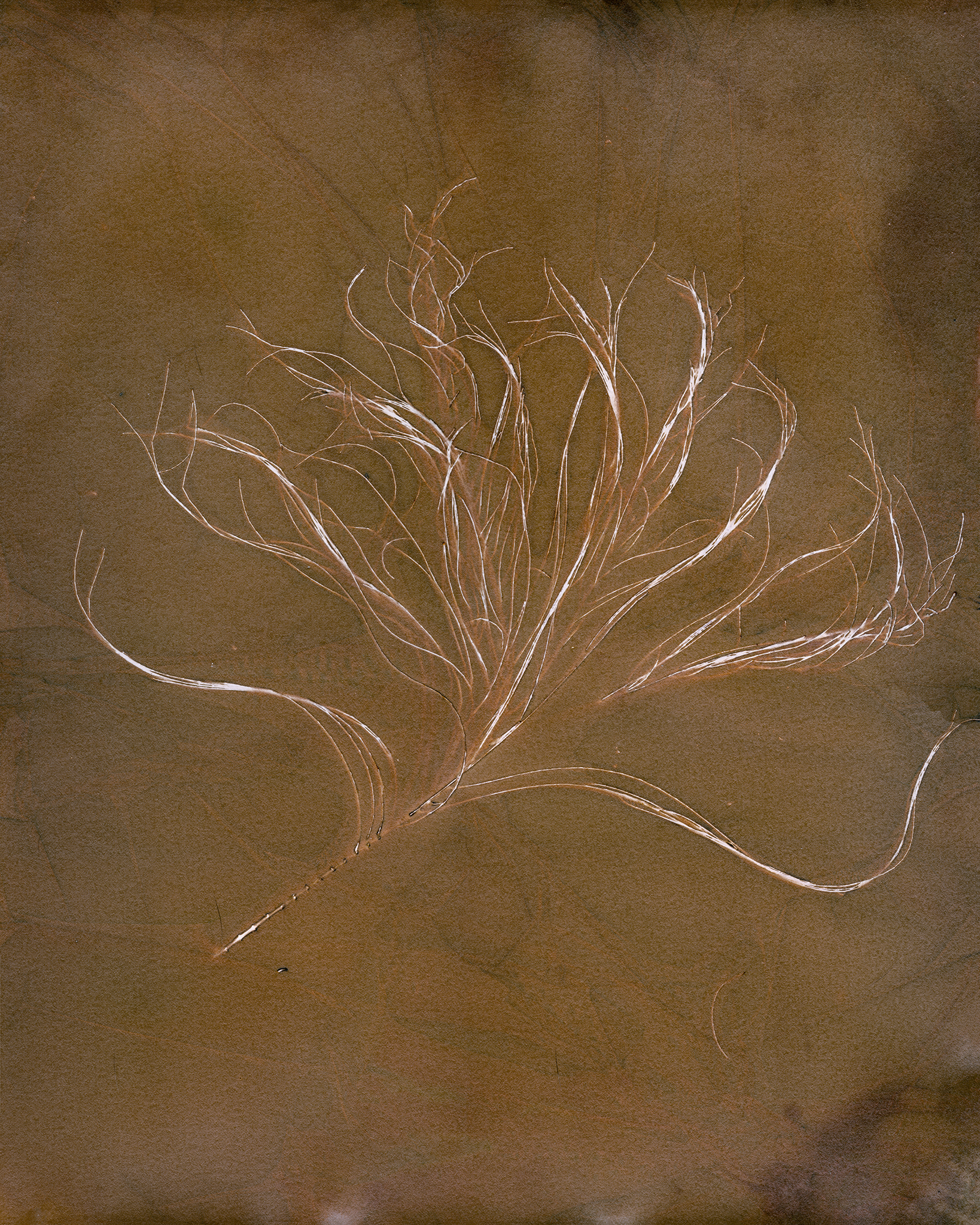
Elizabeth Henderson by Anjella Roessler
Why did you decide to study a MA of Photography?
I completed my Diploma in Photography at Photography Studies College in the 90’s, had a family, a studio, did portraits, advertising, and wedding photography but got seriously ill a few years ago and had to give it all up. While trying to figure out what to do I studied history at UNE and then saw that Deakin was offering a photography degree so figured why not. I completed my Honors First Class in 2018 and loved what I was doing so much, so that when I saw the MA that PSC was offering, I knew it was exactly what I’d been wanting to do.
Would you recommend the MA program at PSC?
I have met such a great group of fellow photographers as classmates. I am in awe of the talent of every single one of them. Everyone is so supportive, and we all come from such different places and skillsets, which are all shared so freely. I feel that I have progressed so much in every facet of my photography. The course itself is a good alternative to people like me who were looking for something in between the usual course-based MA and research-based MA. It’s wonderful to be able to focus wholly on your project for the full 18 months.
The mentor system also requires mentioning. It has been the most amazing experience. To be linked with a working photographer who you can connect with and get regular feedback from has been invaluable. The guest speaker we’ve had, as well, all of whom have been so open and sharing. You really start to know that you are part of something and to feel confident about belonging to the photographic world.
Anjella's final MA exhibition which will include lumen workshops will be held at NOIR Darkroom and Gallery, Coburg from 24 June to 5 July. She will also be teaching 'Fashion On Large Format Paper Negative', and 'Colour Film Photography' workshops at the gallery in March.
